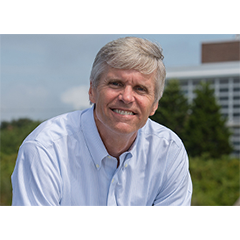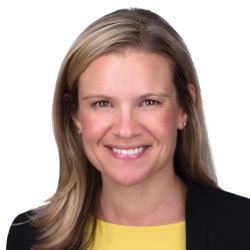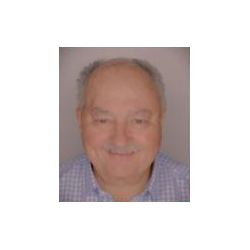Bluetech 2023 Speaker Bios
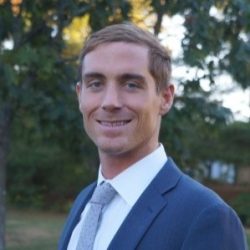
Hobie Boeschenstein – Startup
As the Director of Operations and Business Development at SeaTrac, Hobie has been leading deployments of Uncrewed Surface Vehicles (USVs) at SeaTrac for over 3 years in locations ranging from Massachusetts, to Mississippi, to the Arabian Gulf. A lifelong boater, with a background in mechanical engineering and a Masters in Business Administration, Hobie wears many hats in support of SeaTrac’s mission to make maritime data more accessible to its many stakeholders. SeaTrac’s SP-48 USV platform serves customers in scientific, commercial, and military industries and provides a tool for safe, sustainable, and cost-effective data collection from nearshore to the open ocean.
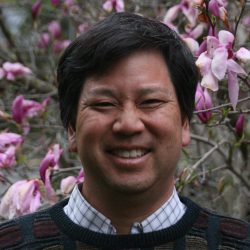
Robert (Bob) Chen – Panelist
Robert F. (Bob) Chen is a Professor and Interim Dean of the School for the Environment at the University of Massachusetts Boston. He received his AB from Harvard University in Chemistry and Physics in 1986 and his PhD in Oceanography from Scripps Institution of Oceanography in 1992. After an NSF Postdoctoral Fellowship at the Woods Hole Oceanographic Institution, he has remained at UMass Boston since 1993, serving as Graduate Program Director, Director of the Center for Coastal Environmental Sensing Networks (CESN), and presently Interim Dean. His research interests include the cycling of chromophoric dissolved organic matter (CDOM), carbon biogeochemistry in coastal systems, and the development of sensor networks in shallow water systems. He has explored dissolved organic carbon (DOC) outwelling from salt marshes, remote sensing of coastal water quality, and indicators of estuarine health. He is also dedicated to ocean and environmental science education and outreach at the local, national, and international levels. He is the Principal Investigator of the NASA PATHS Diversifying Engineering project (www.pathspartners.org), and serves on the boards of the Association of the Sciences for Limnology and Oceanography (ASLO) and the New England Aquarium. H was an ONR Young Investigator, h has published over 80 peer-reviewed articles, and is an active researcher in the area of coastal observations, carbon cycling, and contaminant distribution and fate.
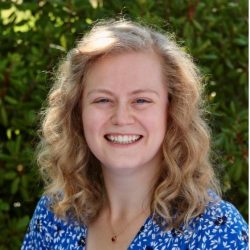
Casey Corrado – Panelist
Casey Corrado is the Mechanical Systems and Advanced Manufacturing Group Lead at the MITRE Corporation. In her role, Casey leads a team of engineers applying advanced design and manufacturing technologies to solve big challenges, focusing on the areas of metamaterials and multi-physics topology optimization. A member of MITRE’s growing BlueTech team, she is a key player in multiple research and development efforts for underwater applications, including the development of novel additively manufactured transducer designs for sonar. Before joining MITRE, Casey received her bachelor’s and master’s in mechanical engineering from Tufts University, where she researched unmanned aerial vehicles for first responders. Casey is an active member of the Society of Women Engineers (SWE), previously serving as Vice President for the Boston section.
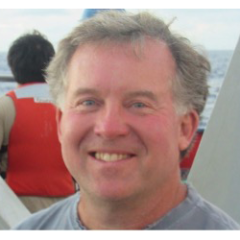
James Edson – Panelist
Dr. Edson is a marine meteorologist who studies the interaction between the ocean and atmosphere to improve marine weather forecasts. He received his PhD in meteorology from the Pennsylvania State University in 1989 followed by an 18 month visiting scientist position at the École Nationale Supérieure de Mécanique in Nantes, France. Starting in 1991, he spent 14 years at Woods Hole Oceanographic Institution (WHOI) as a scientist and 13 years at the University of Connecticut as Professor and Head of Marine Sciences. He has been actively involved in developing ocean observing systems such as the Martha’s Vineyard Coastal Observatory (MVCO), its Air-Sea Interaction Tower (ASIT), and sensor packages for the Ocean Observatories Initiative (OOI) and Tropical Pacific Observing System (TPOS). He returned to WHOI as a Senior Scientist in 2018 to continue his research and rejoin the growing group of experts in air-sea interaction. Most recently, he took over as lead PI of the Program Management Office (PMO) of the NSF’s OOI. Dr. Edson became a fellow of the American Meteorological Society (AMS) in January 2020.
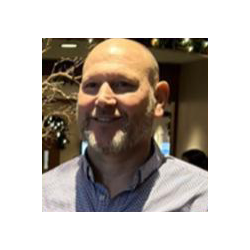
Bill Fistori – Startup
FishPhone Managing Partner
Experienced C-Level Executive, Investor, and Advisor with a demonstrated history of success in the technology industry.
- CEO/Executive involved in (5) M&A deals.
- CEO/Founder/Partner in (4) technology services companies
- 3 out of 4 successful seed exits in the past 5 years.
- >300% return on seed investments
- Actively involved in (2) start-ups as an advisor and investor.
- Participated in over $80M in start-up exits over the past 10 years.
- Member of Entrepreneurs Organization
- Member of CEO Roundtable
- Member of C-Level Community

Shibani Ghosh – Speaker
Shibani Ghosh is a public health nutritionist and Research Associate Professor at the Friedman School of Nutrition Science and Policy within the Food and Nutrition Policy and Programs Division. She is the Associate Director for the USAID Feed the Future Food Systems for Nutrition Innovation Lab and Principal Investigator for the USAID One Nutrition in Complex Environments study in Uganda and the USAID Jordan Nutrition Innovation Lab. She has over 20 years of research experience in the Middle East, South Asia and Sub-Saharan Africa. She is a native of India and has an MS and PhD in Nutritional Science from the University of Massachusetts, Amherst.
Her research focuses on examining malnutrition in all its forms, understanding agriculture to nutrition linkages and the potential for food systems to support optimal nutrition of vulnerable populations particularly infants and young children and women of reproductive age. She designs and implements rigorous research ranging from longitudinal observational studies to randomized intervention trials with the objective of generating evidence and identification of actions for program and policy recommendation.
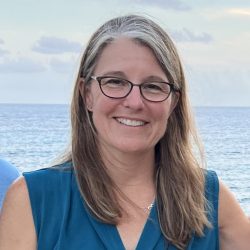
Colleen Hansel – Panelist
Colleen Hansel is a Senior Scientist at Woods Hole Oceanographic Institution. She earned her BS degree in Geology from Sacramento State University, California, an MS degree in Soil Chemistry from the University of Idaho, and a PhD in Biogeochemistry from Stanford University. She has more than 20 years of experience studying terrestrial and marine biogeochemistry, including controls on the metabolic and biological diversity of natural and man-made ecosystems. Over the past decade, she has investigated the environmental controls on the health and biodiversity of shallow and deep-sea coral reefs, seaweed aquaculture systems, and coastal waters. She is also working with academic and non-profit organizations in the US Virgin Islands to enhance the efficacy of artificial reef structures. Colleen is conducting projects from the Bureau of Ocean and Energy Management and the Massachusetts Clean Energy Center on the impact of corrosion and fatigue design of steel and concrete support structures on the growth and biodiversity of marine life. She is also a member of MOCEAN, a group of scientists, engineers, and educators focused on enhancing biodiversity and fisheries associated with offshore wind structures via the implementation of innovative nature-inclusive design strategies and placement of shared ecosystem services.
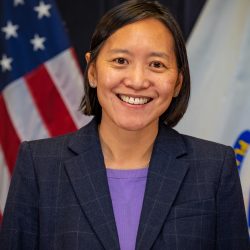
Yvonne Hao – Keynote Speaker
Yvonne Hao is the Secretary of the Executive Office of Economic Development. She has had more than 25 years of executive business experience as a senior executive, including as Co-founder, Advisor, and Managing Director at investment firm Cove Hill Partners and as an Operating Partner at Pillar Ventures. Previously, she was the Chief Operating Officer and Chief Financial Officer of PillPack, an online pharmacy that was acquired by Amazon in 2018. She is also a former Operating Partner at Bain Capital. In addition, Hao has been a Board Director of companies such as CarGurus, Flywire, Gentherm, ZipRecruiter, and Bose. She also has been involved in the community, is the Vice Chair of the Board of Trustees of Beth Israel Lahey Health, and a Trustee Emeriti of her alma mater, Williams College. She lives in Williamstown and Cambridge and is a graduate of Williams College and the University of Cambridge.
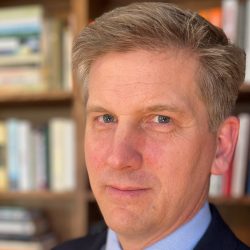
Eric Hines – Moderator
Eric Hines, Ph.D., P.E. directs the offshore wind energy graduate program at Tufts University, where he is a Professor of the Practice and the Kentaro Tsutsumi Faculty Fellow in civil and environmental engineering. Dr. Hines has over 25 years of experience engineering innovative infrastructure. Major offshore wind related projects include: the Wind Technology Testing Center in Charlestown, MA; the New Bedford Marine Commerce Terminal; the Partnership for Offshore Wind Energy Research (POWER-US); Digital Twinning the Block Island Wind Farm; and Transmission Expansion Planning for U.S. Offshore Wind. He works at the technology/policy interface to develop systems-level design concepts and has received numerous awards for his work in industry-driven research. He studied engineering and public policy as an undergraduate at Princeton University and as a Fulbright Fellow in Germany. He holds an M.S. in applied mechanics and a Ph.D. in structural engineering from the University of California, San Diego.
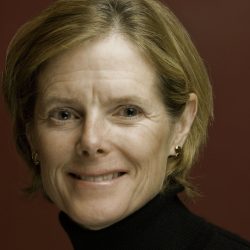
Marcia Hooper – Panelist
Marcia Hooper is a co-founder of Branch Venture Group, LLC, a Boston-based angel group, focused on food startups, targeting agtech, foodtech, CPG, and sustainability. She has over 30 years of venture investing experience having been a partner at Advent International and Ampersand Ventures Ventures. She also serves as a Senior Advisor to Bowside Capital, a private equity firm focusing in the small capitalization market. She has served as a Director of over 30 private and publicly listed companies. Hooper received her Bachelor of Science in chemistry and mathematics from Brown University. She also earned a Master of Arts in chemistry from Columbia University and an MBA from the Harvard Graduate School of Business.
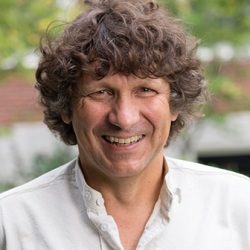
Robert Huber – Startup
At the intersection of Computing and Life Sciences, Robert is a leading developer in AI-assisted devices for fish management, behavioral phenotyping, image classification, and object detection. He authors projects in open-source development and in the maker-space movement.
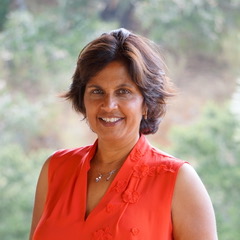
Monica Jain – Panelist
Monica Jain is a recognized leader and sector expert for Blue Economy and Sustainable Seafood. Monica has been an early pioneer working at the intersection of finance, oceans, and technology since 1993. She has been instrumental in growing private investment, businesses and innovation in the sector globally.
In 2012, Monica launched Fish 2.0, which was the first incubator/accelerator program aimed at the global blue economy sector. Fish 2.0 developed a pipeline of over 600 ventures, a network of 700 active and interested investors in the field, and supported investments of over $400M into participating ventures. For her leadership and achievements in creating positive impacts for the blue economy sector, Monica was recognized as one of twelve Champions of Change for Sustainable Seafood by the Obama White House in 2016. She is new developing Fish 2.0 Ventures to finance the growth of companies that have the potential to shape the future of the blue economy. She is a member of the Tufts International Board of Advisors and mom to a rising Tufts senior.
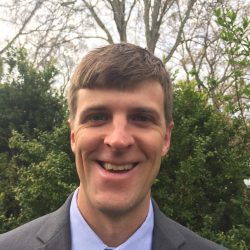
Anthony Kirincich – Panelist
Anthony Kirincich is an Associate Scientist at the Woods Hole Oceanographic Institution (WHOI) and lead Scientist of the Martha’s Vineyard Coastal Observatory. Anthony has a Bachelor of Engineering in Civil and Environmental Engineering from Vanderbilt University, a Masters in Oceanography from the University of Rhode Island, and a PhD in Physical Oceanography from Oregon State University. He is an expert in coastal ocean and atmospheric circulation, the role of ocean mixing in coastal dynamics, and has developed new methods of sensing the ocean and atmosphere using both in situ and remote instruments. He serves as the non-federal lead of the U.S. Department of Energy’s Offshore Wind Forecast Improvement Project with field work planned for 2024 off the US East Coast. Over the past 8 years, Anthony has been working with research and industry partners to establish Ocean Test Beds for ocean technology adaptation and integration into the emerging U.S. offshore wind energy industry.
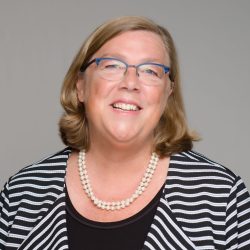
Carolyn Kirk – Moderator
Carolyn A. Kirk was selected by the Executive Committee of the Mass Tech Collaborative (Mass Tech) as the agency’s executive director in February 2019. Mass Tech is a state economic development agency whose mission is to strengthen the tech & innovation economy across a variety of industries including advanced manufacturing, cybersecurity, digital health and other emerging tech areas such as artificial intelligence, fintech, blue tech/marine tech, and robotics.
Kirk previously served as the Deputy Secretary in the cabinet level secretariat of the Executive Office of Housing and Economic Development, a role she held since January 2015. As second-in-command, Kirk was responsible for overseeing all operational aspects of this approximately 1,000 person, billion dollar agency including IT, HR, Communications, Finance and Legal. In addition, she served in various leadership capacities, managed an economic development program portfolio, served alongside the Lieutenant Governor as Vice Chair of the Seaport Economic Council, and tackled difficult assignments for the Administration.
Prior to her roles in state government, in 2007 Kirk became the first woman popularly elected as Mayor of the City of Gloucester, going on to win three subsequent terms. With a strong mayor form of government, Kirk was responsible for all aspects of executive management of the City of Gloucester including public safety, public works, public health, community and economic development, and served as member of the elected School Committee.
Not only did Kirk lead the city through public health, infrastructure and natural disaster emergencies, Mayor Kirk pulled the city through the unpredictable challenges of the Great Recession through strong and disciplined fiscal management. Kirk’s economic development plan focused on diversifying the local economy, traditionally focused on the commercial fishing industry, and emphasized community values and strengths which led to job creation and expansion of the commercial tax base. A key pillar of the city’s economic plan was a focus on the blue economy.
Kirk’s professional career spans more than 25 years and includes long-time experience as a management consultant, working with clients that included many of the Top 20 banks in the U.S. along with Fortune 500 companies.
She was raised in Clinton, N.Y., and moved to Massachusetts to attend college, graduating from Boston College.

Rob Knecht – Startup
Rob Knecht has spent his whole career working on the water as a professional sailor, yacht builder, and oyster farmer. Founding Real Oyster Cult in 2017, he married his experience farming oysters with his passion for technology to create an award winning ecommerce business sourcing oysters and seafood from across North America and delivering it directly to customers. Rob’s passionate about the role oysters play in ocean restoration, and Real Oyster Cult’s mission to support regenerative aquaculture in restoring ocean health.
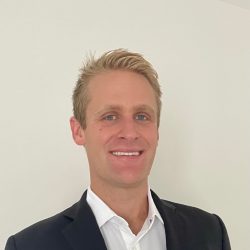
Ryan Lind – Startup
Ryan Lind is a proven sales leader with over a decade of experience in the seafood industry, working in both startups and well-established companies. With a deep-rooted passion for seafood sustainability, Ryan is dedicated to helping customers achieve enhanced profitability while minimizing their environmental footprint through the utilization of groundbreaking technologies. Prior to joining Blue Ocean Gear, he opened a US office and trained a sales team for Open Blue, a sustainable aquaculture business located in Panama. Following this, Ryan was recruited as Sales Manager for True North Seafood Company, one of largest seafood companies in North America. Ryan earned a Bachelor’s degree in Marine Affairs and Economics, as well as a Master’s degree in Aquaculture, both obtained from the University of Miami.
Steven Lohrenz – Panelist
Steven E. Lohrenz is a Professor in the School for Marine Science and Technology (SMAST) at the University of Massachusetts Dartmouth. He served as Dean of the school from 2011 – 2020, during which time he coordinated the UMass Intercampus Marine Science graduate degree program with more than 70 students and a research enterprise generating over $5M a year in grants and contracts. Prior to becoming Dean of SMAST, Steve was the Chair of The University of Southern Mississippi (USM) Department of Marine Science, located at the NASA John C. Stennis Space Center. He received a B.A. in biology and chemistry from the University of Oregon (1978) and a Ph.D. in biological oceanography (1985) from the Massachusetts Institute of Technology‐Woods Hole Oceanographic Institution Joint Program. He has previously managed major projects funded by various federal agencies (NASA, NOAA, NSF, ONR) and currently serves as project manager for the Biodegradability Laboratory at SMAST, which is an industry-university cooperative with support from Primaloft and the Massachusetts Technology Collaborative. He has served on numerous scientific advisory groups and is currently a member of the NASA Geostationary Littoral Imaging and Monitoring Radiometer (GLIMR) satellite mission Science and Applications Working Group (2021-present) and the Massachusetts Ocean Science Advisory Council (2011-present). His research extends across various themes including climate change and human impacts on ocean ecosystems, phytoplankton ecology and physiology, and biogeochemical cycling of carbon and other elements in ocean systems. His current work also includes applications of optics and remote sensing in the study of biological and biogeochemical patterns and processes in aquatic environments and linkages to terrestrial systems. He has authored or co‐authored more than 100 papers in refereed literature and participated in more than 50 research cruises.
Breanna Lungo-Koehn – Speaker
Since coming into Office in 2020, Mayor Lungo-Koehn has led the City with the same philosophy that she brought to the City Council – that transparency, honesty, hard work, and the people of Medford come first.
Leading the City through the COVID-19 pandemic in 2020 and 2021 was an unexpected challenge, especially for a first term Mayor, but through leadership, advocacy, and collaboration, the City of Medford emerged as a statewide leader on many fronts throughout the pandemic. Medford Public Schools were among the first in the state to get students back in the classroom safer and sooner, and was the first city to implement a novel pooled testing program through a partnership with Tufts University.
Other accomplishments and achievements since January 2020 include: developing Medford’s first comprehensive multi-year Capital Improvement Plan, launching the first community-driven Comprehensive Plan process to create a 30 year vision for our future, bringing Medford’s parking enforcement in-house, working to improve conditions at our City’s fire stations and parks, hired the City’s first economic development director, advanced charter review, reworked the City’s budget process – receiving the City’s first Distinguished Budget Award in the process – and more.
Chris Mutti – Startup
FishPhone Inc. President
CTO, Head of Product
- Inventor – holder six technology patents
- New England Innovation Award Winner
- Induced New England Innovation Society
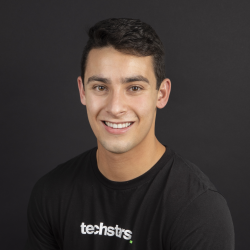
Griffin O’Driscoll – Startup
Griffin O’Driscoll is the cofounder & CEO of Organicin Scientific. Spinning out of Dr. Peg Riley’s lab at UMass Amherst, Organicin is focused on improving animal health through the discovery and development of bacteriocins. Their first product, a prophylactic feed additive that prevents AHPND in shrimp farming, inhibits pathogenic vibrio selectively and has demonstrated to improve shrimp survival by over 300%. The technology underpinning Organicin’s success in shrimp farming is its AI-enabled drug discovery platform, which works to overcome the key barriers in bacteriocin discovery, enabling pivots into other markets such as agriculture and human health.
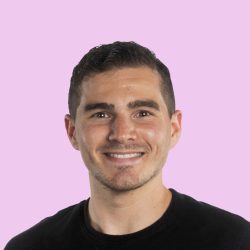
Eric Osherow – Startup
Eric Osherow is an accomplished product manager, entrepreneur, and the CEO and Founder of SeaDeep. His educational journey at Tufts University equipped him with a diverse skill set and fostered a deep passion for addressing the world’s most pressing challenges through innovation. With a Bachelor of Arts in Philosophy and International Literary & Visual Studies, as well as a Master of Science in Innovation and Management from Tufts School of Engineering, Eric’s academic background reflects his commitment to driving meaningful change.
As a Floridian, Eric witnessed firsthand the devastating effects of oil spills and coral destruction events, which inspired him to address the alarming lack of knowledge surrounding our oceans. However, it was his personal journey as a cancer survivor that truly ignited his passion for creating a lasting impact—preserving and protecting our oceans for future generations.
Motivated by this profound experience, Eric co-founded SeaDeep, a pioneering company that leverages AI and computer vision to ensure sustainable research and development of ocean sites. SeaDeep’s groundbreaking work in this field has garnered significant recognition, including being funded by Techstars Equinor Energy Accelerator, awarded grants by Massachusetts Technology Collaborative, MassCEC, featured in Bloomberg New Energy Finance’s 2021 Pioneer White Paper, “Mapping & Measuring Carbon Sinks.”
Alongside founding SeaDeep, Eric honed his leadership skills and contributed to product development initiatives through pivotal roles at NBCUniversal and Disney Streaming. These experiences, coupled with his unwavering drive to innovate, have positioned Eric at the forefront of the intersection between technology, AI, and sustainability. His vision is to leverage cutting-edge solutions that address environmental challenges and create a lasting impact on our world.
Through his leadership of SeaDeep and his dedication to merging technology with sustainable practices, Eric Osherow is resolutely committed to shaping a better future for our planet. His multifaceted background, expertise, and unwavering determination make him a driving force in the pursuit of solutions that safeguard our oceans and contribute to a more sustainable world.
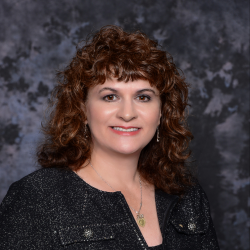
Karen Panetta – Panelist
Karen Panetta received a B.S. in Computer Engineering from Boston University, and a M.S. and Ph.D. in Electrical Engineering from Northeastern University. As the first female electrical engineer to be given tenure in the Electrical and Computer Engineering department, Panetta continues to promote the interests of women in her field. From 2007 to 2009, she was the worldwide director for IEEE Women in Engineering, the largest international professional organization dedicated to promoting women engineers and scientists, and she served as editor-in-chief of the IEEE Women in Engineering magazine. She is the faculty adviser to the Tufts student chapters of both the Society of Women Engineers and the IEEE, and is founder of the nationally acclaimed Nerd Girls program, which promotes engineering disciplines to young students. She is a fellow of the Institute of Electrical and Electronics Engineers (IEEE) and was awarded the 2013 IEEE Award for Distinguished Ethical Practices for exemplary contributions and leadership in developing ethics and social responsibility in students. She has received several NASA and National Science Foundation research grants, including the NSF CAREER Award. In 2011, President Barack Obama awarded Panetta the Presidential Award for Science and Engineering Education and Mentoring. Karen Panetta’s research focuses on developing efficient algorithms for simulation, modeling, and signal and image processing for security and biomedical applications.
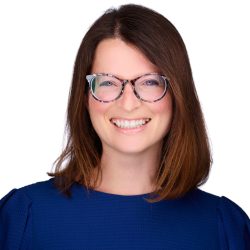
Alissa Peterson – Panelist
Alissa co-founded and leads SeaAhead, a venture studio platform for startups with technologies that enhance ocean health or sustainable ocean industries. From offshore renewable energy to sustainable seafood and a decarbonized maritime industry, cutting-edge ventures in the blue economy come to SeaAhead for investment, resources, and community. Prior to SeaAhead, Alissa was in leadership roles at two venture-backed startups, NanoSteel, an advanced materials company creating solutions for vehicle lightweighting and 3D printing, and Primus Power, a grid-scale energy storage company. Through her work, she has managed business development, strategic planning, product marketing, communications, government relations and M&A. Prior to her startup experience, Alissa was a consultant in McKinsey’s Global Sustainability & Resource Productivity Practice where she served clients on cleantech growth strategy. Alissa holds a Master’s in Mechanical Engineering from MIT and a BS in Civil Engineering from Duke University.
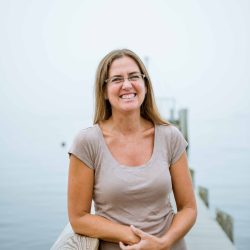
Loretta Roberson – Panelist
Dr. Loretta Roberson is an Associate Scientist at the Marine Biological Laboratory in Woods Hole, MA, USA. She received a BS in Biology at California State University Northridge and a PhD in Biological Sciences from Stanford University. Her research focuses on the development of large-scale, offshore macroalgae farms and how they may be used to protect sensitive ecosystems like coral reefs.
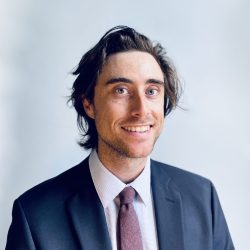
Kevin Rosa – Startup
Kevin Rosa is the founder of Current Lab, a computational oceanography startup specializing in hyperlocal ocean forecasting. Dr. Rosa’s scientific expertise is in numerical fluid dynamics and high performance computing and he has served as an oceanographer in the Department of Energy and the Department of Defense.
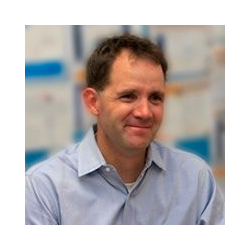
Chip Terry – Startup
Chip’s curiosity and love of new challenges has led him on an unlikely journey from a Ph.D. in American History to leading businesses at the cutting edge of analytics and software. He has had leadership roles at companies ranging from natural language processing (Zoominfo) and information (Forrester Research) to social media (BzzAgent) and retail analytics (dunnhumby).
He is currently CEO and co-founder of BlueTrace: a venture backed startup that helps seafood businesses run, grow, and modernize their operations. With over 350 clients across North America, they are rapidly becoming the leading software company for the SMB seafood market.
In his spare time, Chip is a competitive sailor, enthusiastic mountain biker, and card player. His son is a student at Tufts.
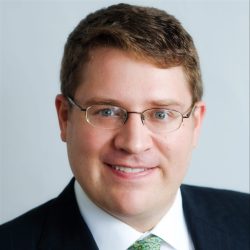
Rockford Weitz – Speaker
Rockford Weitz is Professor of Practice, Entrepreneur Coach, and Director of the Maritime Studies Program at The Fletcher School of Law and Diplomacy. He also serves as President of the Institute for Global Maritime Studies Inc., a 501(c)(3) non-profit seeking practical solutions to global maritime challenges, and President & CEO at Rhumb Line International LLC, a consultancy providing strategic advice to entrepreneurs and startups. In 2014, Rockford served as founding Executive Director at FinTech Sandbox Inc. From 2008 to 2013, he served as founding CEO at CargoMetrics, leading the effort to build a VC-backed financial technology business that started in his Cambridge apartment. Before co-founding Rhumb Line in 2005, he served as International Counsel at Schweitzer Engineering Laboratories Inc., leading the effort to open 12 international subsidiaries and streamline global operations. He also worked at the U.S. Trade Representative, and co-founded and served as Program Director of the Borgenicht Peace Initiative, a social entrepreneurship venture. Rockford earned a J.D. from Harvard Law School, M.A. and Ph.D. degrees from The Fletcher School, and a B.A. in International Relations: Political Economy from the College of William and Mary. He is a fellow in the U.S.-Japan Leadership Program.
